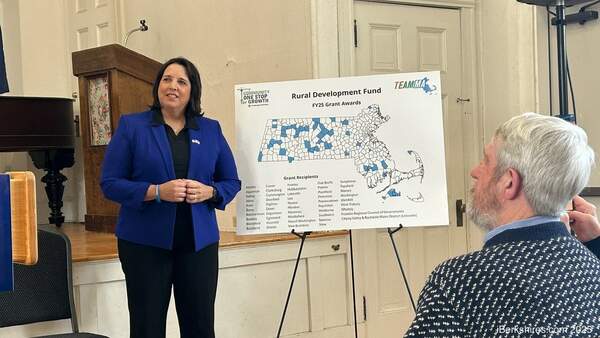National Grid Submits Comprehensive Performance Investment Plan
WALTHAM, Mass. – Massachusetts Electric Company and Nantucket Electric Company, which are part of National Grid, filed with the Massachusetts Department of Public Utilities (DPU) a Comprehensive Performance and Investment (CPI) plan, as part of its required Rate Review filing, designed to deliver the fair, affordable and clean energy transition, reinforce the local energy grid, and hold the company accountable to achieving a smarter, stronger, cleaner and more equitable energy future for the 1.3 million customers the company serves across the Commonwealth.
"The proposal we've filed today, coupled with our electric sector modernization plan, Future Grid, will deliver the fair, affordable and clean energy transition for all our customers and communities," said Nicola Medalova, the COO of Electricity for National Grid New England. "Fulfilling this mission requires a smarter, stronger, cleaner grid that can meet the rising power demand driven by electrification to support the Commonwealth's climate and clean energy goals, while ensuring the system is there when customers need it – no matter the weather. Today's proposal reflects the core investments necessary to strengthen the local electric grid, while holding ourselves accountable to meeting our customers' expectations."
The CPI plan details the core investments needed in the system over the next five years to build the foundation for the clean energy future, including hundreds of projects to modernize and reinforce the local energy grid and improve system performance through the replacement and upgrade of substations, poles and wires, the implementation of technology and programs designed to help avoid power outages that can be prevented and restore power faster to customers for outages that can't be prevented, and the expansion of system capacity to meet growing customer and community needs and ensure the grid is ready when they need it.
Plan includes innovative programs and foundational investments to increase energy equity, advance electrification, enhance safety and reliability, and hold the company accountable for delivering for customers, communities and the state
The plan also includes innovative rates and programs to drive energy equity, support electrification, and improve the overall customer experience by providing more and easier to access information on clean energy solutions and services and bill management options.
As proposed in the CPI plan, National Grid will deliver an energy future that is more equitable, more reliable and resilient, and improves the overall customer experience, by:
-
Supporting Affordability and Equity. Implementing a tiered discount rate program – a first for Massachusetts -- that provides larger discounts for some income-eligible customers, coupled with a robust and sustained outreach and awareness campaign. Currently customers eligible for a reduced electric rate receive a 32 percent discount. The company is proposing a more equitable approach which would result in discounts of 32 percent up to 55 percent, depending on income and energy burden, for customers earning 60% of the state median income or less. The filing also proposes a dedicated team to engage eligible customers through in-person events and targeted outreach to increase program participation.
-
Enhancing Reliability and Resilience. Deploying technology – known as reclosers -- to automatically restore power to as many customers as possible as quickly as possible, in the event of a system fault, expanding an enhanced tree trimming program, and deploying "tree resistant" wires to minimize system impacts from fallen limbs. Over the past decade, National Grid experienced more severe storms across its system, more than doubling from an average of 4 per year to 10 per year. These and other investments will ensure customers continue to experience the high levels of system reliability they do today and reduce the costs of increased storm-related damage.
-
Empowering Customers and Improving Their Experience. Enhancing the customer experience by improving customer interfaces for transactions – including customer connections -- and expanding customer offerings and digital options. The company is also proposing an opt-in electrification rate to support customer energy choices and the transition to cleaner energy, while upgrading its customer systems and establishing dedicated teams to provide more tailored and relevant information and communications to help customers manage bills, reduce costs and access energy efficiency and clean energy solutions.
To deliver on the CPI plan, the company has proposed a regulatory mechanism that will drive accountability, transparency, performance, and predictability for customers by requiring National Grid to proactively lay out its investment needs, plans and associated costs over the next five years, while placing the onus on the company to deliver customer, climate and reliability outcomes within an approved budget, or risk penalties. For example, the company has proposed metrics to hold it to account for, among other things, enrolling eligible customers in discount rate programs, on-time and on budget delivery of construction projects, adoption of clean energy requirements and reducing greenhouse gas emissions.

















